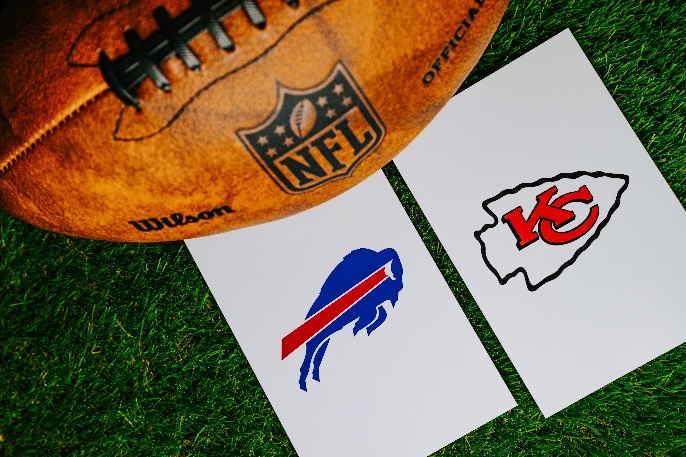
The AFC’s fiercest modern rivalry is set to reignite this November, as the Buffalo Bills host the Kansas City Chiefs in what promises to be one of the most consequential games of the 2025 NFL regular season.
Scheduled for Sunday, November 2 at Highmark Stadium, the meeting carries playoff implications, quarterback legacy weight, and emotional baggage from postseason heartbreaks — particularly for a Buffalo franchise still looking to fully exorcise the demons of its playoff past.
This will be the seventh time in five seasons that Josh Allen and Patrick Mahomes will go head-to-head — and the football world has learned by now that when these two titans meet, the outcome often reverberates deep into January.
With the above in mind, let’s take a look at some of the major storylines ahead of November’s clash. Additionally, for those who are with a sportsbook with in-play markets, the below information could help you make informed decisions when using LiveScore Bet.
A rivalry forged in fire
The Bills-Chiefs rivalry has grown into one of the NFL’s most compelling storylines over the last half-decade. While Buffalo have had Kansas City’s number in several regular-season contests, it’s been the Chiefs who’ve delivered the knockout punches in the playoffs — none more brutal than the 2021 Divisional Round game that saw 25 points scored in the final two minutes of regulation and overtime, capped by a Mahomes-to-Kelce dagger.
Since then, the Bills have tried to rebuild, retool, and rise again — and each season, the Chiefs have stood in the way. Can Buffalo overcome some of their past heartbreak and reign supreme at home in what is a crucial regular season match-up? Or, will the Chiefs prove once again that they should not be doubted in big moments? We will have to wait to find out.
Quarterback duel of a generation
It’s hard to ignore the star power behind centre. Patrick Mahomes, a two-time Super Bowl champion and perennial MVP contender, has already solidified his place among the league’s elite. On the other sideline, Josh Allen remains one of the game’s most electrifying — and confounding — players, capable of 400 total yards and four touchdowns, but also prone to the high-risk mistakes that have haunted the Bills in big moments.
Allen has won regular season duels with Mahomes before, most recently in 2023, when the Bills escaped Arrowhead with a narrow win. But the postseason is where legacies are made — and where Allen, so far, has come up short against Kansas City.
This game won’t rewrite history — but it might reshape the narrative going forward.
Key match-ups to watch
The Bills’ defence will need to contain Mahomes’ off-script creativity, something few teams have managed to do. That job becomes more complicated if tight end Travis Kelce and the emerging wide receiver group hit stride. On the other side, Kansas City’s defensive unit — faster and more aggressive under coordinator Steve Spagnuolo — will try to rattle Allen, force turnovers, and keep him from extending drives with his legs.


 Hudson Cosper is a rising YouTube creator—some call him a “YouTube sensation.” Recently, he’s gained attention for his motivational videos and personal-growth narratives. His channel boasts around **50,300 subscribers** and features around **21 videos** as of last month. Among them? Titles like *“how I mastered the law of detachment to make millions at 20”* and *“i got rich really young and I know exactly why it happened”*—videos with impressive view counts, including one with **179K views** [YouTube].
Hudson Cosper is a rising YouTube creator—some call him a “YouTube sensation.” Recently, he’s gained attention for his motivational videos and personal-growth narratives. His channel boasts around **50,300 subscribers** and features around **21 videos** as of last month. Among them? Titles like *“how I mastered the law of detachment to make millions at 20”* and *“i got rich really young and I know exactly why it happened”*—videos with impressive view counts, including one with **179K views** [YouTube]. Bitcoin has been called many things: digital gold, a speculative bubble, a revolution, and a scam. But regardless of the noise, its price has risen steadily over time, drawing believers who claim it will one day be worth $1 million per coin. That number sounds outrageous at first. Yet, when we break down the forces of scarcity, adoption, and macroeconomics, it becomes less far-fetched. In fact, some argue it’s inevitable.
Bitcoin has been called many things: digital gold, a speculative bubble, a revolution, and a scam. But regardless of the noise, its price has risen steadily over time, drawing believers who claim it will one day be worth $1 million per coin. That number sounds outrageous at first. Yet, when we break down the forces of scarcity, adoption, and macroeconomics, it becomes less far-fetched. In fact, some argue it’s inevitable.